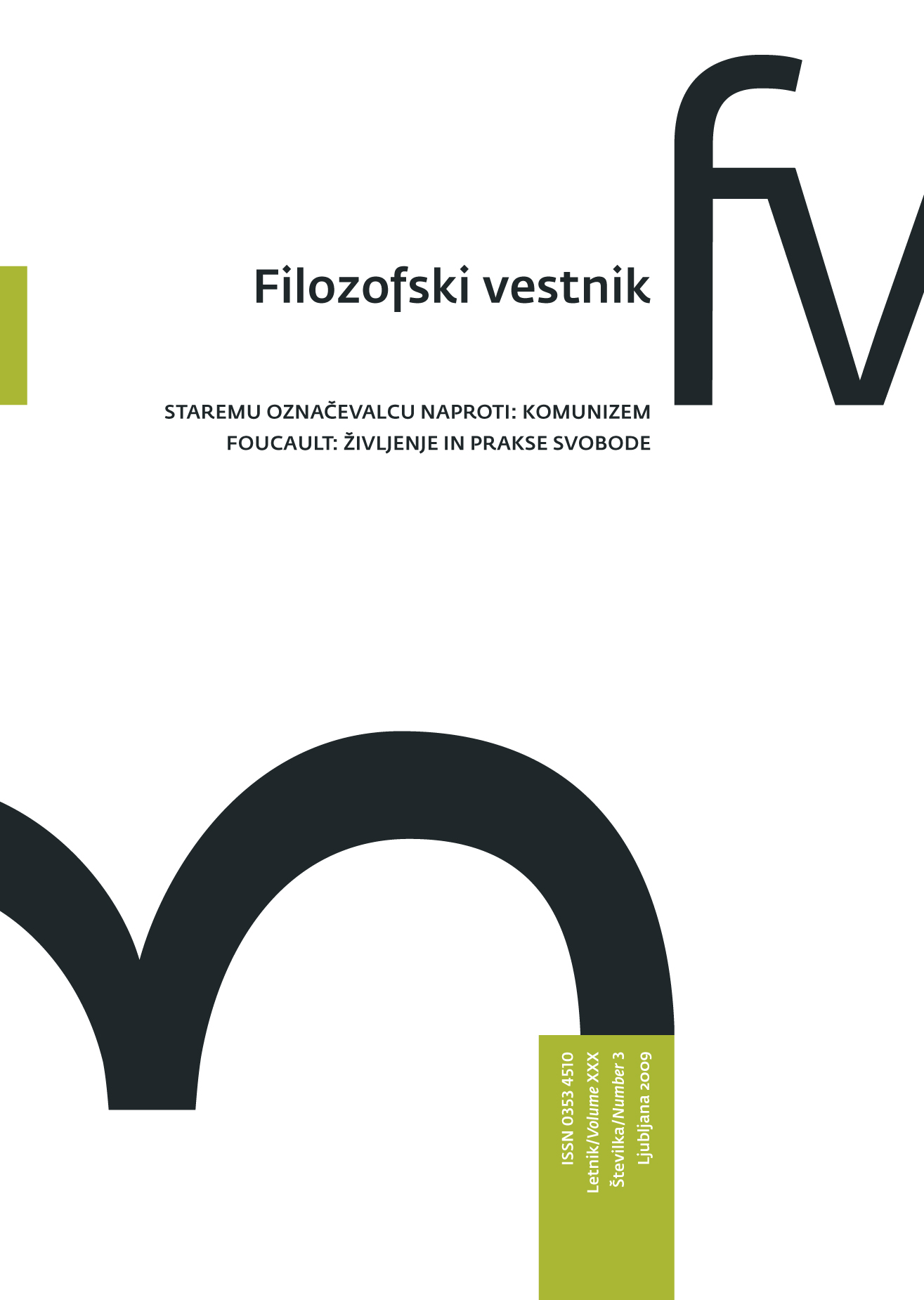Obscure Subject/Subject to Obscurity
Keywords:
communism, philosophy, Badiou, the subjectAbstract
The material object of this article is quite precise: the final pages of Badiou’s D’un désastre obscur. The pretextual use of such textual reference is due to the fact that a singular twist is performed in these pages. After a wise and ironical analysis of the vulgata of the so called “death of communism”, the book opens onto a peculiar and yet strategic point: it allows us to conceive of communism as a condition for thought. And this for two reasons: because it poses the necessity of a radical break against present categories, and because it poses the necessity of a collective procedure whose aim is universal. We will in fact see how the singularity of a radical novelty and the universality of a declared truth appear to be essential elements via which, simultaneously, communism establishes itself against a present state of fact, and philosophical thought exposes the difference between a universal truth and a system of opinions in which it appears as a radical break. Finally, by analysing some difficult points of Badiou’s thought we will try to unfold how such a relation between communist practice and philosophical thought cannot take place under the mode of a deduction, but only as a constant fracture, which is always embodied in specific, polemical modes which are active inside communism, inside philosophy, and in the relation of the two.Downloads
Download data is not yet available.
Downloads
Published
2016-03-08
How to Cite
Besana, B. (2016). Obscure Subject/Subject to Obscurity. Filozofski Vestnik, 30(3). Retrieved from https://ojs.zrc-sazu.si/filozofski-vestnik/article/view/4458
Issue
Section
Towards an Old Signifier: Communism
License
Authors guarantee that the work is their own original creation and does not infringe any statutory or common-law copyright or any proprietary right of any third party. In case of claims by third parties, authors commit their self to defend the interests of the publisher, and shall cover any potential costs.
More in: Submission chapter





